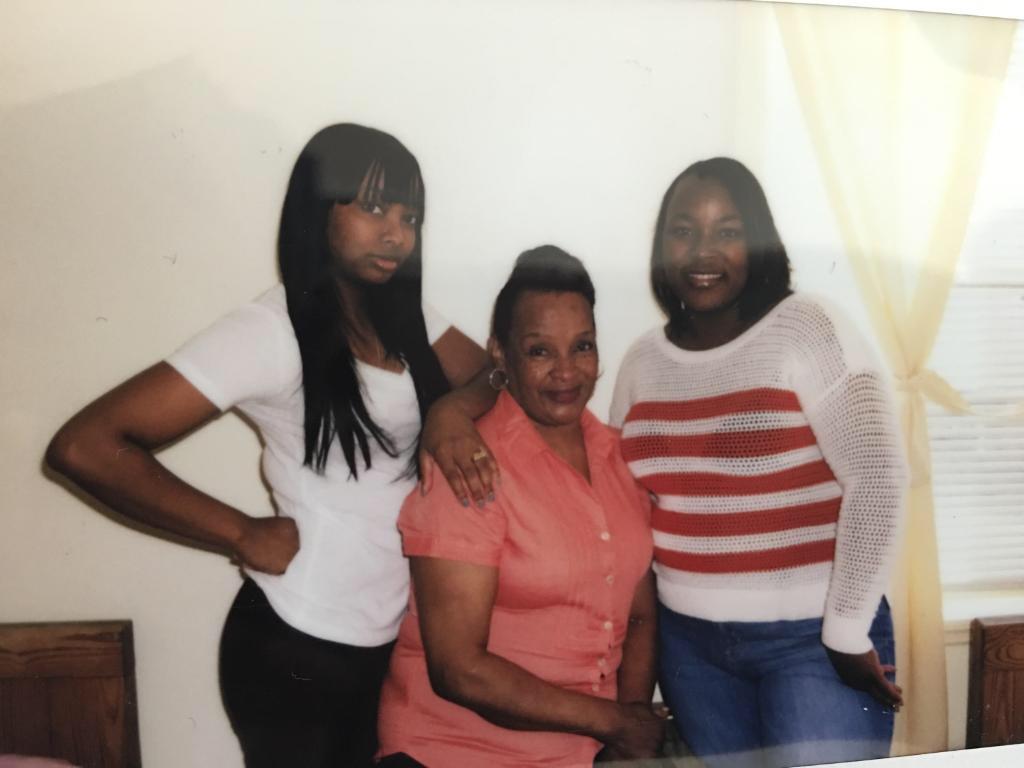New York Woman Imprisoned For Defending Herself From Abuser Seeks Mercy
Jacqueline Smalls was sentenced to 15 years in prison for killing a boyfriend whose ‘hands were his weapons.’ She now joins the ranks of criminalized survivors seeking clemency from Governor Cuomo.

On the night of Aug. 26, 2012, Adrian King stormed into the home of his girlfriend Jacqueline Smalls at 1512 Van Vranken Ave. in Schenectady, New York. In the two years that King lived with Smalls, he repeatedly choked her, leading to his arrest on multiple occasions as well as two orders of protection. Soon after entering the apartment that night, according to Smalls, King attacked her again; this time, however, she fought back, stabbing King once, fatally.
Even though Smalls defended herself from a man with a well-documented history of abusing her—King once smashed her phone to prevent her from calling the police and she recalled that “my abuser’s hands were his weapons”—prosecutors from the Schenectady County district attorney’s office insisted that she did not have a viable self-defense case and charged her with second-degree murder. Smalls later entered a guilty plea to a lesser charge of first-degree manslaughter. In December 2013, a judge sentenced Smalls to 15 years in prison; she is incarcerated at the Bedford Hills Correctional Facility, New York’s maximum-security prison for women.
Nearly five years later, Smalls, 55, is among an unknown number of survivors of abuse languishing in New York prisons. No government agency tracks the numbers of survivors incarcerated for defending themselves, but a 2007 study by the New York’s Department of Corrections and Community Supervision found that 67 percent of women who were admitted to a New York prison for killing a loved one in 2005 had been abused. Nationally, nearly 60 percent of incarcerated women reported experiencing abuse before their arrest.
Smalls is hoping that Governor Andrew Cuomo will grant her clemency and allow her to rejoin her family before her sentence ends in 2027. Her 29-year-old daughter, Nikki Smalls-Williams, too is desperately hoping that the governor will have compassion for her mom. On Aug. 9, Smalls-Williams read her mother’s story aloud as part of the kickoff event for the #FreeThemNY campaign, which demands that Cuomo grant clemency to abuse survivors in New York prisons. It was the first time she had spoken publicly about her mother’s experience.
Smalls-Williams was 23 when her mother was arrested and detained at the Schenectady County Jail without bail. She was living about 170 miles away in Queens, but still made the long drive to visit her mother regularly. Only then did she learn about the extent of the violence her mother had suffered at the hands of her abuser. “She thought she could handle it herself by getting law enforcement involved, which obviously didn’t work out for her,” Smalls-Williams recalled. “Schenectady County failed her.”
Governors have the power to issue an unlimited number of clemencies to any person at any time. They can issue a commutation, or the shortening of a prison sentence, which allows either an earlier parole hearing or an immediate release. They can also issue a pardon, expunging a person’s criminal conviction altogether.
In 2015, Cuomo announced the creation of a clemency review initiative to identify people in the state’s prison system who might be worthy of commutation. Cuomo set stringent criteria for consideration, requiring a applicants to have been sentenced to at least one year in prison, to have already served at least half of that sentence, and to not be scheduled to appear before the parole board within the next year. So far, Valerie Seeley is the only domestic violence survivor to have been granted clemency by Cuomo, whose record on commutations is generally extremely poor. He has issued a total of 12 commutations since taking office in 2011, two of them occurring in 2017 and 2018. In contrast, California’s Jerry Brown has issued 84 commutations during his seven years as governor; 45 of those were granted in 2018 alone.
Smalls, now six years into her 15-year sentence, does not fit Cuomo’s strict clemency criteria. “Ms. Smalls is not yet eligible,” Cuomo’s press office stated in an email to The Appeal. “Once she is, her case will be thoroughly evaluated and evaluated on its own merits, just as every other case is.”
But Hafizah Omar, an organizer with Survived & Punished NYC who is working with Smalls, noted that Cuomo himself set these criteria and that “the governor doesn’t have to adhere to these criteria. He can free anyone at any time.”
Gubernatorial candidate Cynthia Nixon, meanwhile, has promised to “commute the sentences of survivors of domestic violence who are incarcerated for acts of self-defense” while criticizing Cuomo’s record on commutations.
Cuomo’s counsel Alphonso David has previously said that the governor’s office was “actively looking at domestic-violence victims, as well as juveniles and elderly people in prison, to determine clemency.” It’s unclear, however, if this is still the case. Cuomo spokesperson Colin Brennan recently told The Appeal only that “every clemency application is reviewed on a case by case basis and thoroughly evaluated. If there are similar cases, each one will be evaluated on its own merits.”
Smalls-Williams, however, is urging Cuomo to make good on his earlier promise: “Just send my mom home.”
